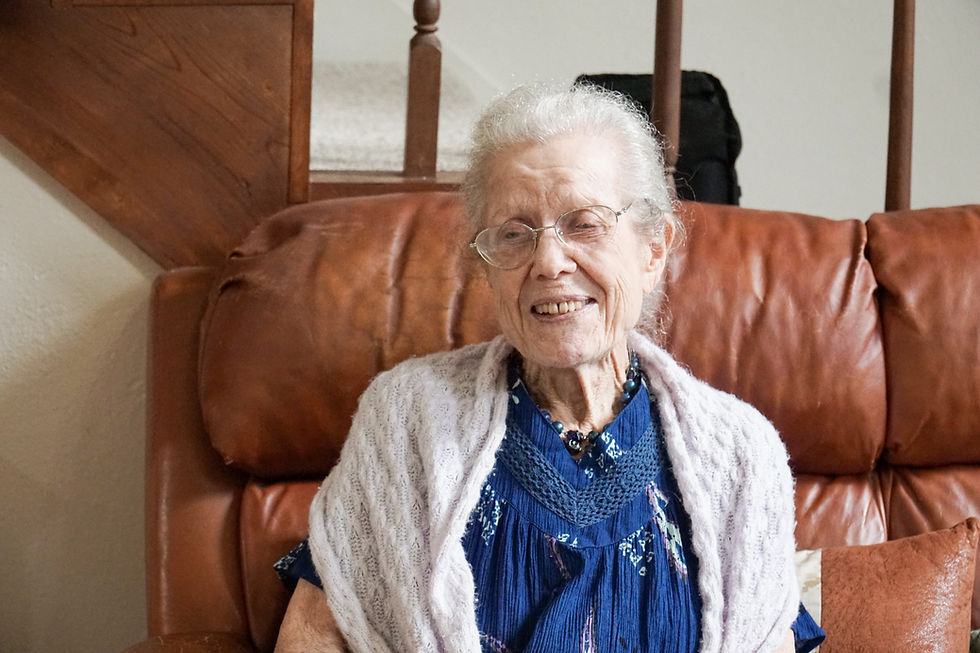Redefining Home: Moving into a Care Facility
- Lauren Fallat, LPC LPAT ATR-BC

- Jul 17, 2025
- 2 min read

Moving into a care facility, even one that is safe and supportive, often stirs complex emotions. For older adults, this transition can bring a profound sense of disorientation, grief, and even shame. Leaving behind a beloved home can feel like a loss of identity and autonomy. This blog explores how older adults can emotionally adapt to life in a care facility and how families and professionals can support that process.
Grieving the Loss
The initial phase of transition when moving into a care facility is often marked by grief. Older adults may mourn not just their home, but their former life, routines, and sense of control. Allowing space for this grief is essential. It should not be rushed or minimized.
Creating Continuity and Comfort
Creating a sense of continuity is key. Bringing familiar objects, photos, and cherished items into the new living space can make the environment feel more like home. These items serve as emotional anchors, offering comfort and familiarity.
Maintaining Meaningful Routines
Maintaining meaningful routines provides structure and predictability. Whether it’s morning tea, evening prayer, or a favorite hobby, continuing these rituals helps foster stability and a sense of self.
Fostering Relationships and Community
Relationships are a vital part of emotional adaptation. Forming connections with staff and fellow residents can reduce feelings of isolation and helplessness. Participating in communal meals, group activities, or spiritual services helps build a sense of community.
Providing Mental Health Support
Mental health support can ease the emotional adjustment. Therapists, counselors, or on-site social workers can offer tools for coping, processing grief, and cultivating acceptance. Support groups provide space to share experiences and gain perspective.
Encouraging Family Involvement
Family involvement should not end at the door. Regular visits, phone calls, and participation in care planning reinforce the message that the older adult is still deeply valued and connected. Encouraging family rituals, like shared meals or holiday traditions, can bridge the gap between the past and present.
The Role of Staff and Caregivers
Staff members play a crucial role. When caregivers approach residents with respect, warmth, and genuine curiosity, they help preserve dignity and foster trust. Person-centered care that honors individual preferences and histories makes a significant difference in emotional well-being.
Redefining Home
Redefining home is not about the physical space but about creating a sense of belonging and security. With intentional support, older adults can adapt to care settings in ways that honor their stories, celebrate their resilience, and uphold their humanity.
To Schedule an Appointment for Counseling or Art Therapy
To Schedule an appointment, please click here.
To learn more about Holistic Health Counseling Center, please visit our website at www.hhccnj.com
To learn more about Art Therapy, please visit our Art Therapy website at: https://www.arttherapynj.com/
If you or someone you know is suffering with Tinnitus, please visit our website for more information about how we can help at: www.HelpforTinnitus.com


